Embroidered Patches
HPI Emblem art department can help you adjust your art to work as an embroidered patch.

Embroidered patches are an excellent way to showcase a brand. They also work great for team building and instilling camaraderie with members of a group.
- Classic embroidered patches use polyester thread sewn onto a poly-blended twill. These traditional embroidered patches work well for corporate logos, team mascots, on uniforms, and as special badges of honor or membership.
At HPI Emblem, we’ve specialized in producing high-quality embroidered patches for wholesale distributors since 2006 for everything from boys’ and girls’ clubs, to athletic teams, to fire-and-rescue, police and military. Let’s explore how to know if your art, logo, or design will work for embroidery and how to size and price production of a classic embroidered patch.
Need help ordering embroidered patches? Our specialists are here to help!
Call us at 858-618-1798 or email us at: info@hpiemblem.com
- YOUR SITUATION:
"I’m trying to match an existing logo or art.”
When you’re ordering embroidered patches for a specific company, team, club, group or event, first thing you’ll need is some art. HPI Emblem can help adjust your artwork, so no need to come to us with a finalized digitized embroidery file before placing an order. Any photo, graphic art, vector file, or bitmap image will do, and our experts can create an embroidery file for you to approve.
- Know up front that embroidery works best with simple designs and large text.
If your logo, artwork, or design has gradients, small text or lots of fine details, other types of patches may work better.
- Our friendly Seattle-based staff can help with which patch type works best for your needs. Or you can learn more here: patch design types for woven, sublimated or photo-over patches.
Design guidelines for embroidered patches:
- Embroidery works best with simple designs and large text.
- There is a 12-color maximum for embroidered patches.
- Gradients are not recommended for embroidered patches.
- Text should be at least 3/16" tall to embroider well.
|
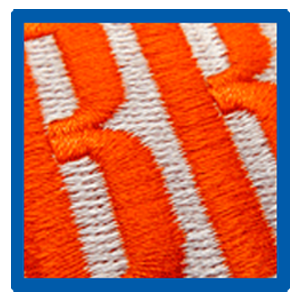
|
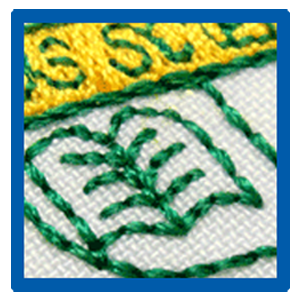
|
|
COLUMN or SATIN STITCH
The most common of stitches is the Satin or Column stitch. It is a tight zig-zag pattern most often used for borders and lettering. As you see here, this treatment looks much cleaner than a simple Run stitch.
|
RUN or WALKING STITCH
If the text in your design is less than 3/16” tall, it will need to be a Run stitch. Run stitches are used for detail, traveling point-to-point or for underlay. Running stitches are only as wide as 1 strand of thread.
|
- NEXT, YOU’LL WANT A PRICE:
"How do I know what it will cost?”
Learn how to calculate your pricing for embroidered patches below. Or, call us and we can help you determine the best type patch, patch size, border type, and backing that works best for you.
1. CHOOSE ONE OF THESE EMBROIDERED PATCH TYPES: 50%—75%—100%
The first step in pricing your embroidered patch is to choose how much embroidery it’ll take to reproduce your existing logo or artwork. There are three options here we can consider, based on the area of the design that is filled with embroidery: half, three-quarters, or fully embroidered.
There are 3 types of embroidered patches:
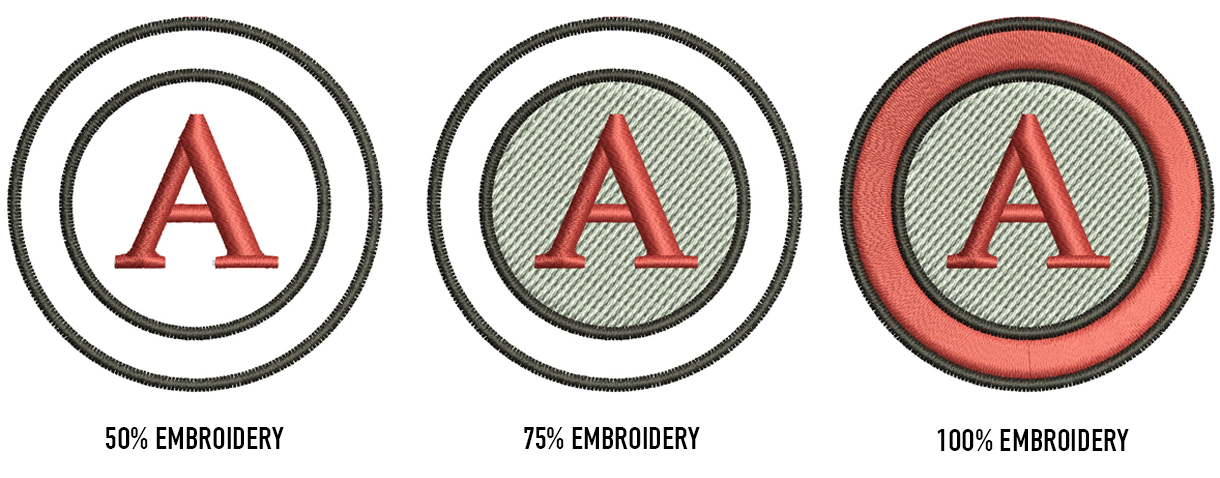
1. 50% — These patches have minimal embroidery, such as text, on a twill background.
2. 75% — These patches typically include text plus a logo.
3. 100% — These patches are completely covered with thread.
PATCH SIZE: Add the height + the width and divide by two to get your patch size.
BORDER TYPE: Choose a merrow border or a satin-stitched border, both are the same price.
The satin stitch border is on top of the patch and is 1/16" thick. The merrow border wraps around the edge of the patch and is about 1/8" thick.
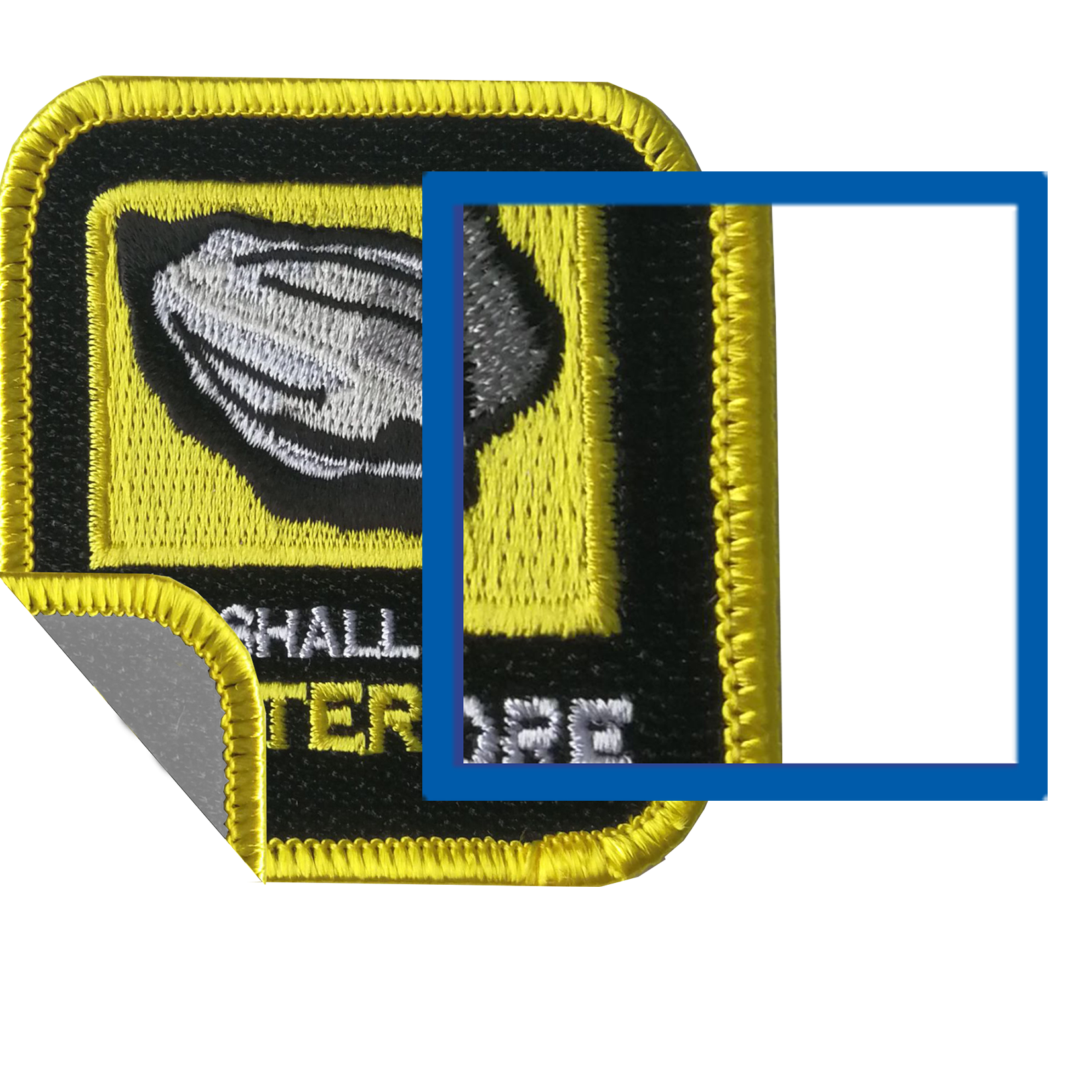
MERROW BORDER: This is the standard patch border. This 1/8" border overlocks the emblem edge, preventing fraying. For large, simple shapes like circles and shields.
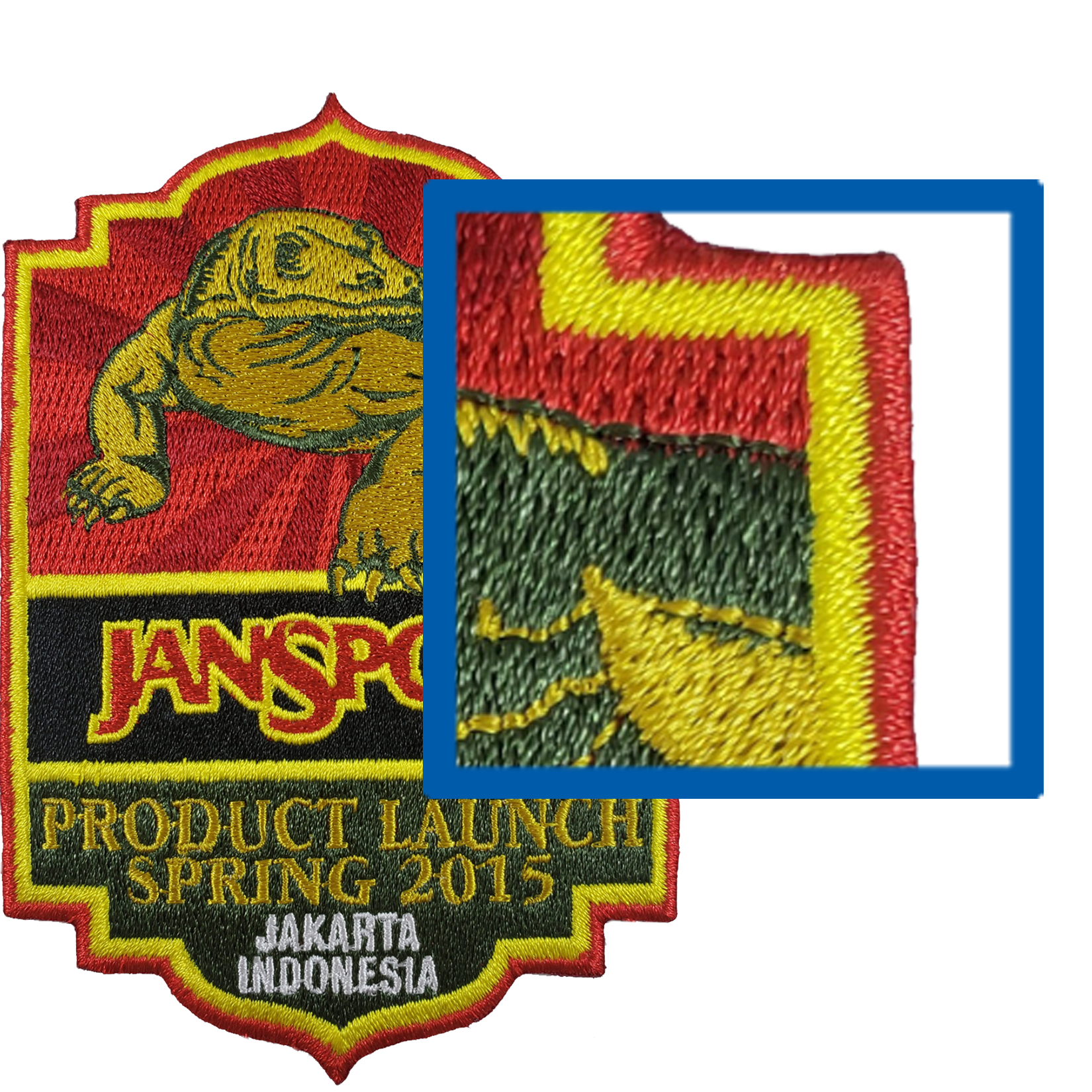
SATIN STITCH BORDER: A hot-knife cut border with a 1/16"-1/8" satin stitch edge simulates a merrow border without over-locking the emblem's edge.
*If yours is a partially embroidered patch, there will be a small amount of twill showing around the edge of the satin stitch border. In this case, we sometimes recommend doing a fully embroidered patch or making the twill and border the same color, depending on your design.
BACKING: Add what is on the back of your patch by choosing between several different backings.
The most popular are:
1. Heat Seal —For application with a heat press (iron is not recommended).
2. Plastic — For sew-on application. Makes for a sturdier patch and a smoother backing.
|
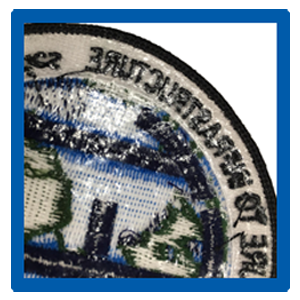
|
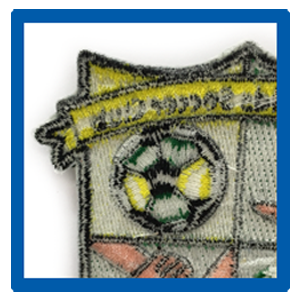
|
|
Heat Seal Backing
|
Plastic Backing
|
You can also choose to get peel-and-stick or hook-and-loop backing, depending on your needs.
|
.png)
|
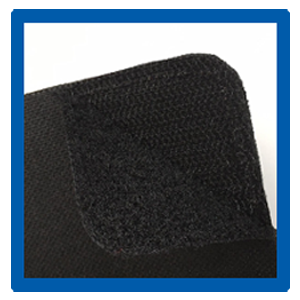
|
|
Peel-and-Stick Backing
|
Hook-and-Loop Backing
|
For more information about patch backings, check out our blog: “Which Backing Is Right for Me?”
For more information about patches, visit our website: https://www.hpiemblem.com/Products/Patches/PatchesInfo
Need help ordering an embroidered patch? Our specialists are here to help!
Call us at (206) 905-1562 or email us at: info@hpiemblem.com